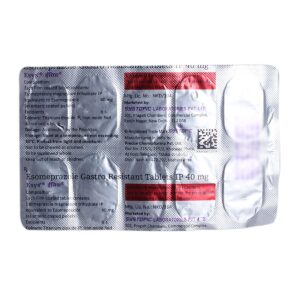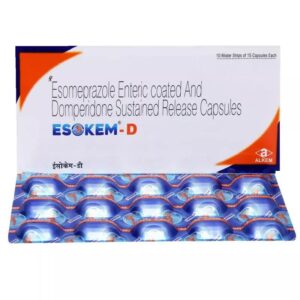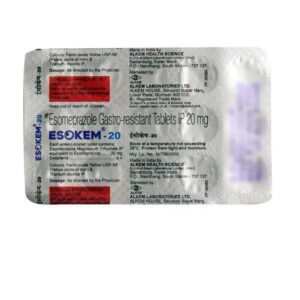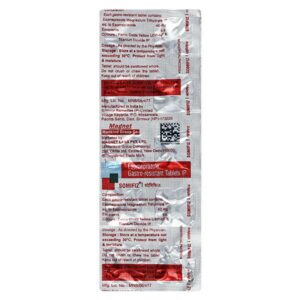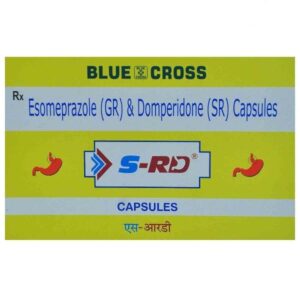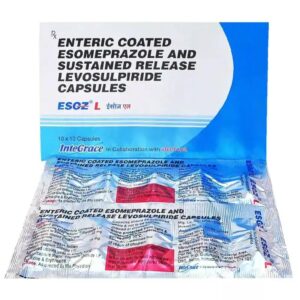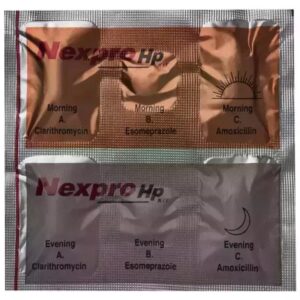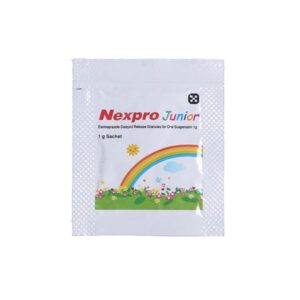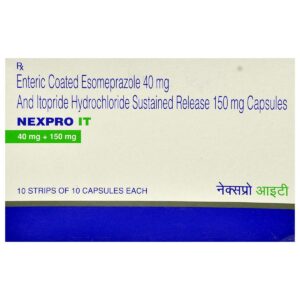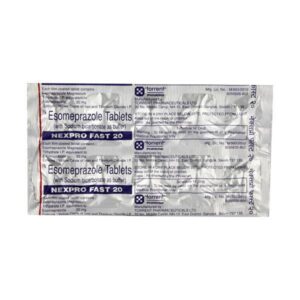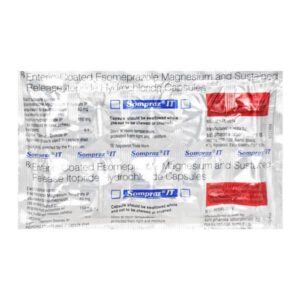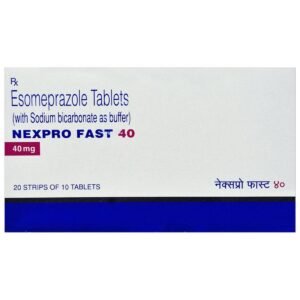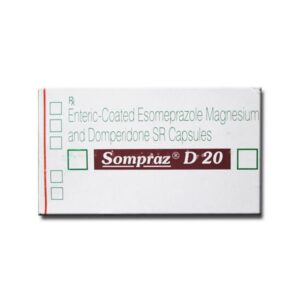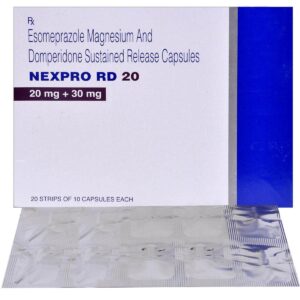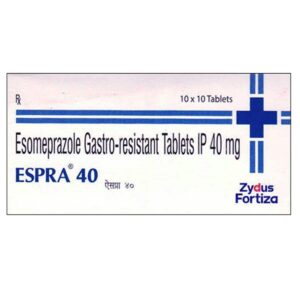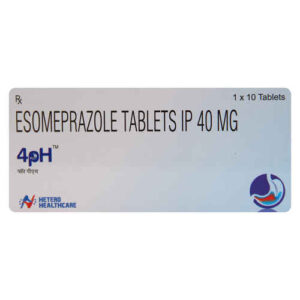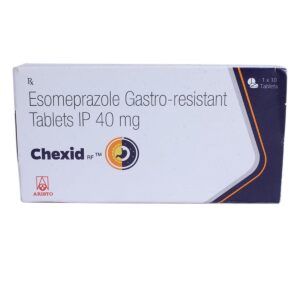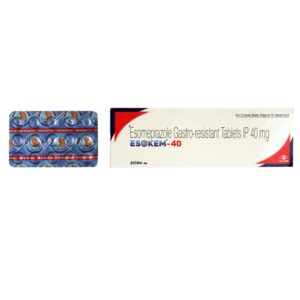ESOMEPRAZOLE
ESOMEPRAZOLE: Esomeprazole, sold under the brand name Nexium, is a medication used to treat conditions related to the excessive production of stomach acid. It belongs to a class of drugs known as proton pump inhibitors (PPIs).
The primary use of esomeprazole is to treat gastroesophageal reflux disease (GERD), which causes heartburn and acid reflux. It is also used to treat stomach ulcers caused by infection with Helicobacter pylori bacteria, long-term use of nonsteroidal anti-inflammatory drugs (NSAIDs), or other factors. In addition, esomeprazole can be prescribed to reduce the risk of gastric ulcers in individuals taking NSAIDs.
The mechanism of action of esomeprazole involves inhibiting the enzyme responsible for acid production in the stomach lining. It works by binding to the proton pumps, which are responsible for the final step in the production of stomach acid. By inhibiting these pumps, esomeprazole reduces the acid secretion from the stomach, thereby providing relief from symptoms and promoting healing of ulcers.
Esomeprazole is generally available in the form of delayed-release capsules or tablets. The typical dose for adults is 20-40 mg once daily for 4-8 weeks, depending on the condition being treated. The medication should be taken at least one hour before meals, usually in the morning. Dosage adjustments may be required in individuals with severe liver impairment.
Like any medication, esomeprazole may cause side effects. Common side effects include headache, dizziness, diarrhea, abdominal pain, nausea, and flatulence. In some cases, it may lead to more serious side effects such as allergic reactions, severe stomach pain, or signs of low magnesium levels. Long-term use of PPIs like esomeprazole may increase the risk of certain conditions such as fractures, kidney problems, and vitamin B12 deficiency.
It is important to consult a healthcare professional before starting or stopping esomeprazole, as it may interact with other medications and medical conditions. Individuals should follow the prescribed dosage and duration of treatment, and not exceed the recommended dose without medical supervision.

